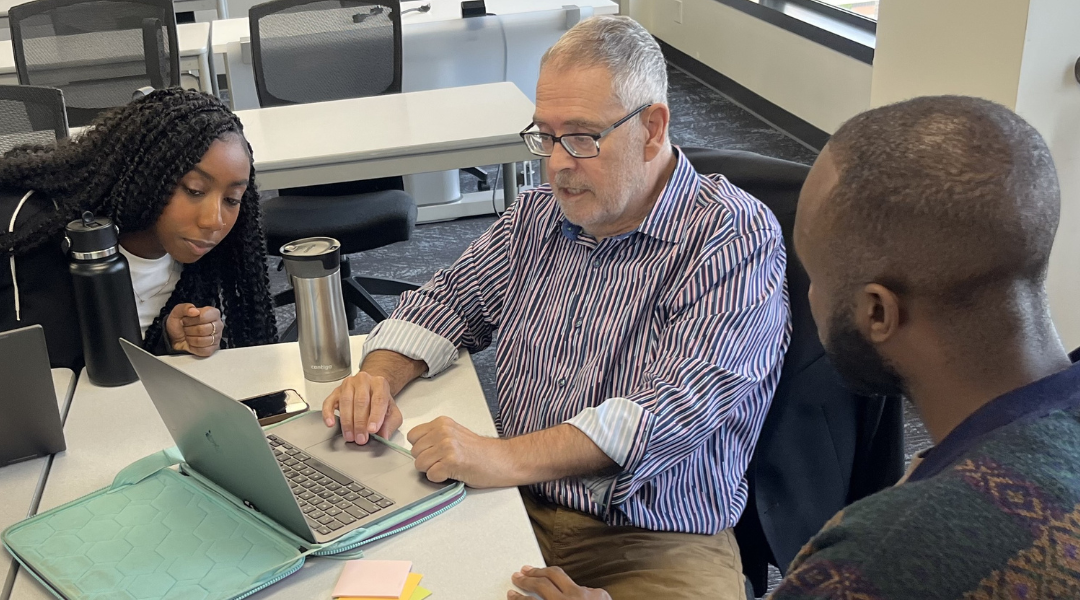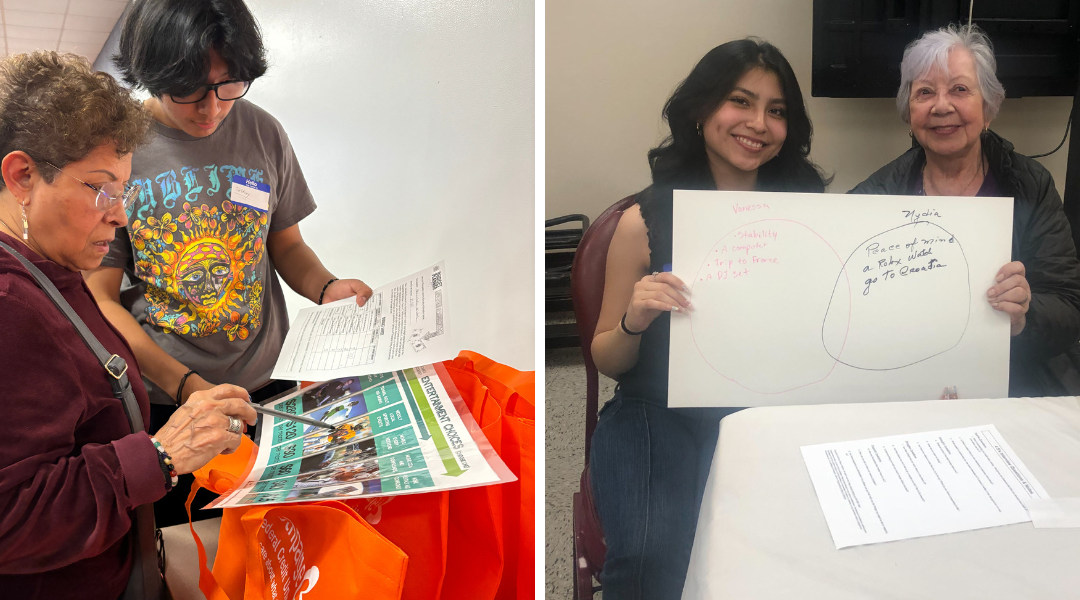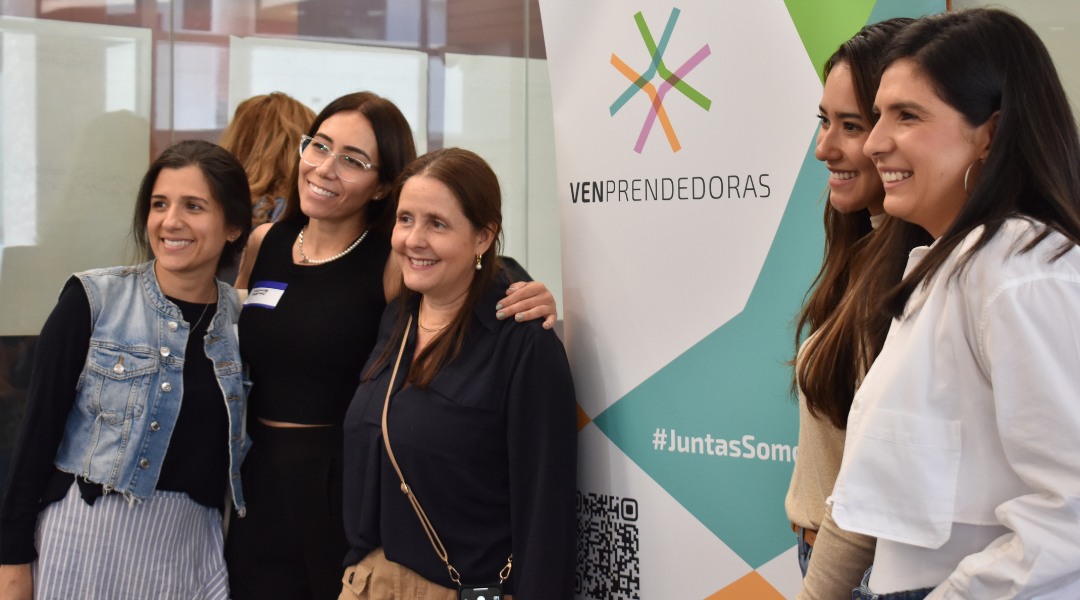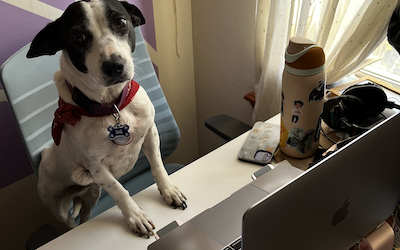
Mayor Melvin Carter (far right) stands with People’s Prosperity Pilot participants and film subjects, Lucille O’Quinn, Abbey Jacoby and Anders Paulson and Mya Nay at a screening of “It’s Basic” in St. Paul, Minnesota. Photo by Ryan Stopera.
Kathrine Cagat is the Research and Program Manager for Mayors for a Guaranteed Income and Counties for a Guaranteed Income, and her project is one of 10 awardees of the CoGen Challenge to Advance Economic Opportunity. Watch for interviews with all 10 of these innovators bringing older and younger people together to open doors to economic opportunity for all.
What is guaranteed income?
Guaranteed income programs provide recurring cash payments, with no strings attached and no work requirement, so people can have an income floor needed for income stability. It typically lasts for 12 months minimum, and it’s money you can count on in your monthly budget. We’re supporting several pilot programs happening now.
What is the Guaranteed Income Works National Tour?
We host community events, where we show the It’s Basic documentary and host a panel discussion, bringing together younger and older mayors, local and state government officials, community partners and pilot recipients across different generations from coast to coast to foster intergenerational discussions about the importance of expanding guaranteed income programs.
We want people to leave with an increased understanding of guaranteed income and an interest in advocating for federal policy that would make it part of our social safety net.
How do youngers and olders solve the problem together?
To create new policy, you need intergenerational engagement and support. Younger people tend to be more audacious around what’s possible, but older people often have more experience in how to get things across the finish line. Both things are needed. We have a lot of young people who are pilot admins and they’re working closely with older and also younger people in government. To see them collaborating and bringing their complementary skills and perspectives to the table is exciting.
What life events brought you to do this work?
I’ve been lucky enough to live in different states and countries during times of social upheaval and see that, no matter what was going on globally, there were always people working together locally to meet the challenge. Guaranteed income feels related to that kind of community support – it’s something happening at the local level that helps people get through difficult times, and that this can lead to a more widespread national movement.
What problem are you trying to solve?
The concept of guaranteed income has been around for a long time, but it’s not something that many people thought was possible until the child tax credit was introduced during the pandemic. That helped so many families navigate such a difficult time and showed what’s possible with guaranteed income. We want to help more people understand that it’s possible and get them to believe that folks deserve this kind of support. We ultimately want people to encourage policymakers to get it done.
Your organization advocates for a new way to help people escape poverty. How can a cogenerational approach help?
Income instability cuts across generations. And if one person in the household can have the stability that guaranteed income provides, then they’re in a better position to support other members in their family and broader network. A guaranteed income that is unconditional allows for that flexibility, as there are no specific expenses you’re required to use it on, and it supplements other benefits that are tied to very specific expenses and cannot be as easily or freely distributed and shared. A high tide raises all boats.
Have you encountered any unexpected positive or negative outcomes in bringing your project to life?
I’ve been a little surprised by how much hope and positivity and energy there is in local governments across the country. It’s been joyful to see so many young people getting involved, and to see older government officials, who have done so much for their city and country and not become jaded. They still have belief and trust in the system. It’s exciting!
What advice would you give to someone who is looking to cogenerate?
We all exist in a particular timeline and with different contexts and assumptions and baggage. It’s nice to have someone outside of that, to maybe highlight something we’ve missed or some idea we’ve never thought of. My advice would be to keep that in mind – the value of engaging with people outside of your own contexts. Age is part of that, because it shapes the way you think. In order to get out of that thinking and be open to new approaches, you have to have proximity to people with different perspectives and different contexts.
Favorite way to wind down and relax?
I live in northern California and I love starting my weekend mornings by driving out to the beach and getting in the ocean. I wear a wetsuit, but the water is so cold it’s hard to think about anything else. It really clears my mind. During the migration season, t’s not uncommon to see dolphins or whales in the distance, and if you start your day that way, how can you be in a bad mood? You have to have some sense of how lucky you are to be alive. Sometimes I go before sunrise. It’s always amazing.





